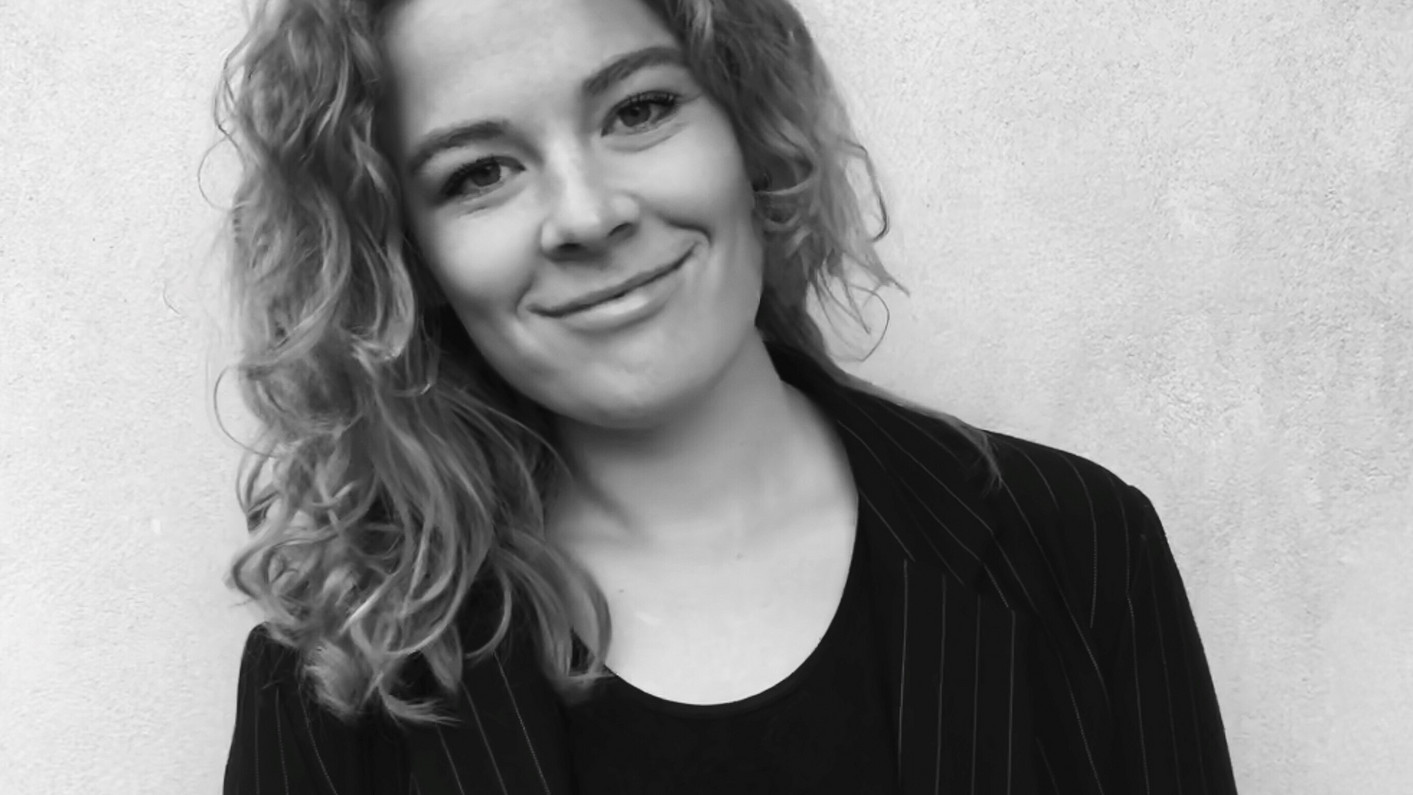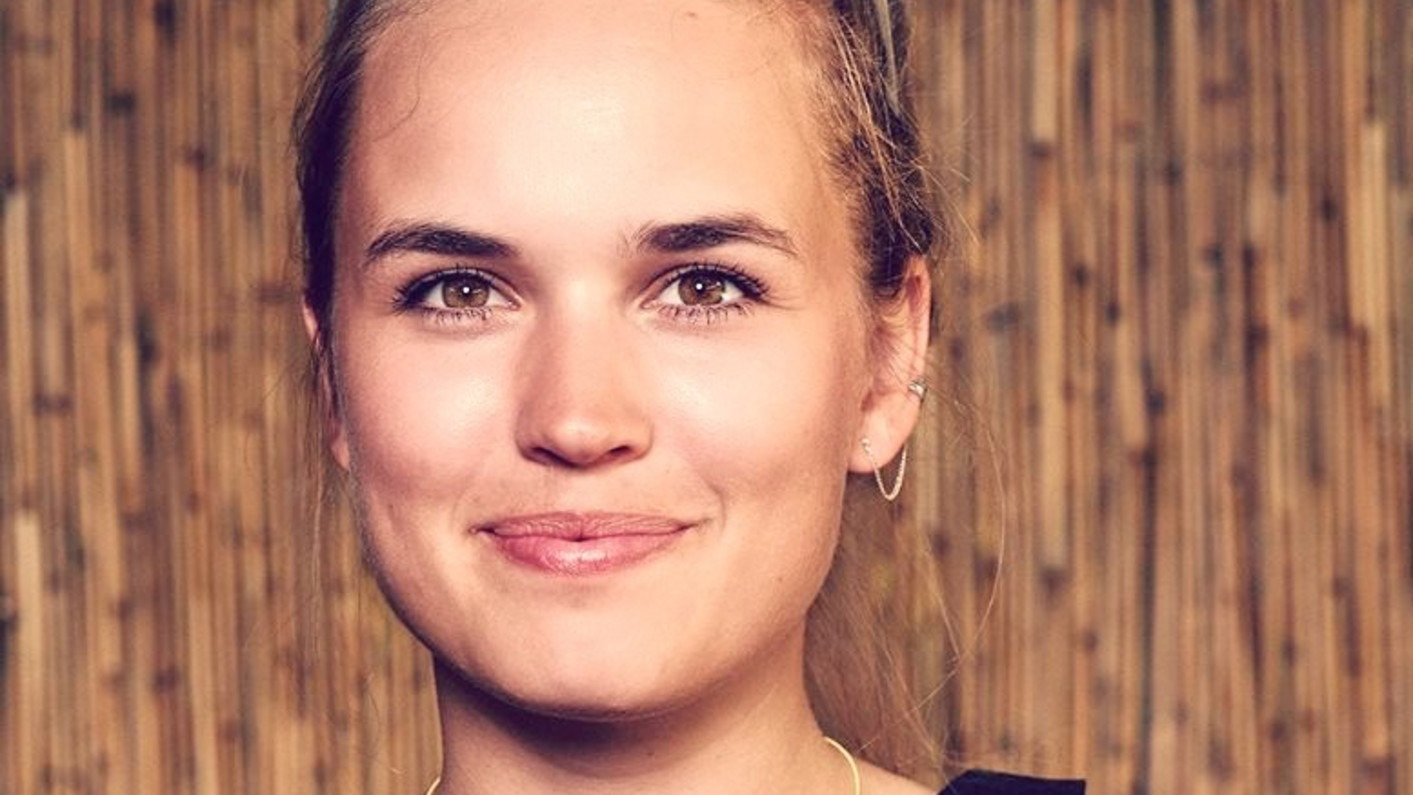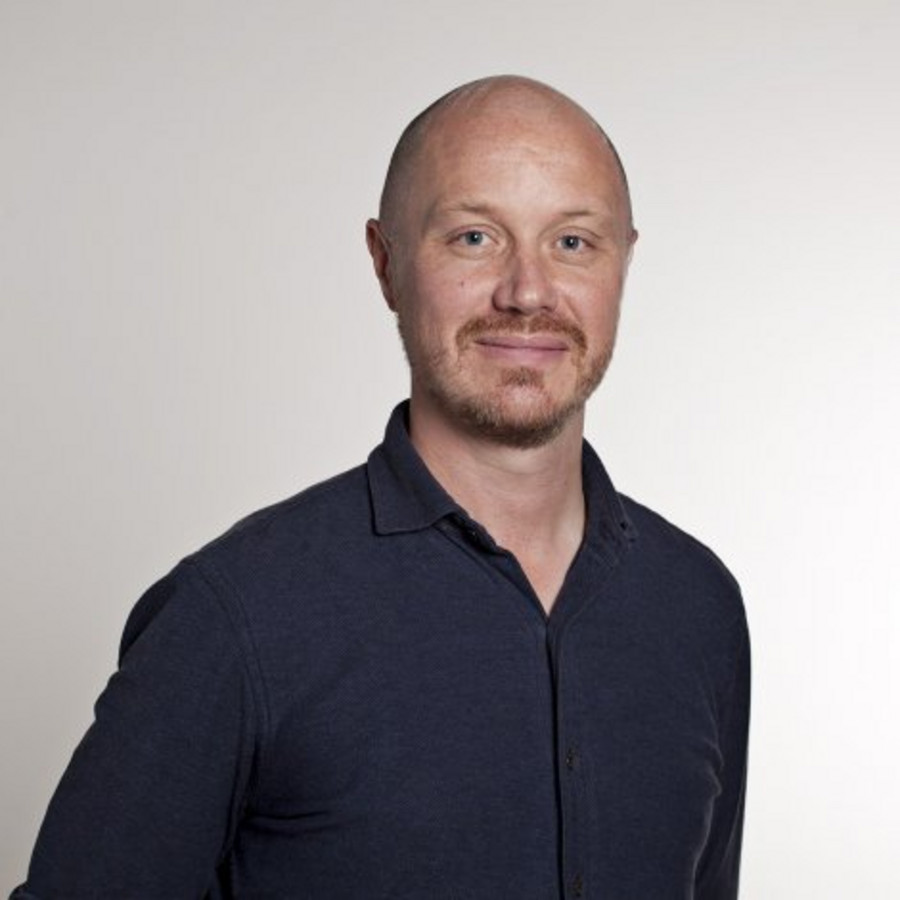Music Management qualifies you to work in management, development and operations in the music industry, and in related areas of the experience and cultural industries.
On this study programme you become part of a diverse and inspiring study environment, where teachers, supervisors and fellow students stimulate and challenge your development.
The study programme is combines theory and practice in the interface between social studies and the arts.
Guest teachers and internship help to strengthen your networks, both in Denmark and abroad, and the study environment at RMC itself offers fruitful interdisciplinary relationships across the boundaries of the Conservatory’s various study programmes.
How do I apply?
You can read about this and much more under APPLICATION and ENTRANCE EXAMINATION below.
See as well the general information about application and admission:
| The study programme opens for applications | 15 October 2024 |
| Online information meeting | 5 November 2024 - at 16:00 Danish, at 17:00 English |
| Deadline for online application | 2 December 2024 at 12:00 CET |
| 1st round - You are not present | 2-10 January 2025 |
| Outcome of the 1st round by email | 16 January 2025 |
| 2nd round - You attend at RMC | 29-30 January 2025 |
| Outcome of 2nd round by email | 14 February 2025 |
| Online meeting for applicants offered a study place | 19 February 2025 at 16:00 |
| Start of study | 18 August 2025 |
Application and Entrance examination: Music Management
WHO CAN APPLY?
You must have concluded an upper secondary school leaving examination (stx), a higher preparatory examination (hf), a higher commercial examination programme (hhx), a higher business examination programme (eux*) or a higher technical examination programme (htx), or be able to document an equivalent, concluded study programme abroad.
* eux - study competency exam in connection with vocational education and training) + apprenticeship certificate/professional exam or eux - mercantile 1st part with extension, if you started in August 2017 or later.
No exemptions will be made from these requirements.
If you haven't passed your upper secondary education yet, you must submit documentation from your school stating that you will pass the secondary education before start of study.
If you already have a degree from another further education (i.e. university), you must still upload your leaving certificate from upper secondary school, as it is qualifying.
The entrance examination at RMC is not coordinated with programmes at other academies of music. You are welcome to apply to several academies.
You can apply for several programmes at RMC simultaneously, but the entrance examinations are not coordinated.
WHERE TO APPLY
You must apply online through:
You must create a profile, fill in the online application form and upload relevant files.
WHAT SHOULD THE APPLICATION CONTAIN?
In the application form you will be asked to answer the following questions:
- What is your motivation for applying for the Music Management programme?
Describe how the education is a relevant step towards your goals for the future.
(Max 1000 keystrokes) - Where do you see yourself career wise in five years' time?
(Max 1000 keystrokes) - Discuss a relevant, current, and defined challenge in the music business.
You must put your angle on the chosen subject and support your arguments.
Your discussion must reflect your knowledge about the music business and demonstrate your ability to reflect and express yourself in writing.
List of sources is well-regarded.
(Max 2400 keystrokes) - Additional comments (optional).
(Max 500 keystrokes) - List and describe your 4 (or less) most important music business relevant job experiences.
(Max 400 keystrokes per experience)
In the application form you will be asked to upload the following:
- Copy of qualifying examination diploma.
The certified documentation must be in Danish, Norwegian, Swedish or English.
Format: pdf
or
- Copy of documentation from your school stating that you will pass the secondary education before start of study.
The certified documentation must be in Danish, Norwegian, Swedish or English.
Format: pdf
APPLICATION FEE
Applicants for a bachelor programme at RMC must pay an application fee of 500 DKK. The fee covers part of the conservatory's costs in connection with processing applications as well as planning and running the entrance exams, and cannot be refunded after the application deadline has expired.
DEADLINE
The deadline for applications is 1 December at 12:00 CET. If this date is a Saturday, Sunday or a public holiday, the deadline will be at 12:00 CET on the next weekday.
WHO IS SELECTED FOR THE ENTRANCE EXAMINATION?
All who apply for admission to the Bachelor programme Music Management, will have their applications assessed at the first round of the entrance examination.
FORM AND CONTENT OF THE EXAMINATION
The entrance examination is in two rounds:
1st round is an assessment of the written application.
2nd round consists of a bound assignment, followed by a presentation of your solution, a presentation of a project of your own choice and an interview.
The entrance examination takes place at RMC.
1ST ROUND - ASSESSMENT OF THE WRITTEN APPLICATION
At the 1st round of the entrance examination, an assessment panel will assess the written application.
You are not present.
In assessing the application, the panel will consider:
- Your ability to reflect and express yourself in writing.
- Your general familiarity with the music industry.
- Your experience in developing and/or managing projects within the music industry or related industries.
- Your motivation for applying.
No emphasis will be placed on whether or not you can play an instrument. The programme does not aim towards educating musicians in managing their own careers.
The assessment panel consists of three examiners.
You will be assessed according to a 100 point scale, which is a subdivision of the Danish 7 step grading scale. A minimum of 40 points, corresponding to 02 in the Danish 7 step grading scale, is required to pass the entrance examination.
The assessment is given, related to the level required to commence the programme.
SELECTION AFTER 1ST ROUND
Based on the assessment, a number of applicants are selected to advance to the 2nd round of the entrance examination.
It is a requirement that you pass the 1st round, to advance to the 2nd round.
All applicants receive an email after the 1st round. For applicants who are through to the second round, the email will contain the precise time of the entrance examination.
No feedback is offered to applicant who do not advance to the second round.
2ND ROUND - BOUND ASSIGNMENT, PRESENTATION & INTERVIEW
The 2nd round of the entrance examination consists of a bound assignment followed by a presentation of your solution, a presentation of a project of your own choice and an interview. The entrance examination takes place at RMC.
Before the presentation and the interview, you must solve a bound assignment. 40 minutes before the entrance examination starts, you will be welcomed by a host, who will ensure that you know how the examination will be carried out. The host will upload the bound assignment via the chat function in Zoom. You then have 30 minutes to solve the assignment. The host will let you know when the 30 minutes have past, and after another 5 minutes, the entrance examination will start. You get two assignments and then choose which one to solve. The bound assignment is to be solved individually. The assignment will be based on a realistic scenario from the music business. You will then present your solution when the presentation starts.
- Bound Assignment
- You must choose and solve one of two bound assignments.
The assignment will be based on a realistic scenario from the music business and must be solved individually in an assigned room.
Duration: 30 minutes.
- You must choose and solve one of two bound assignments.
- Presentation
- Presentation of your solution to one of the two bound assignments.
Duration: 5 minutes.
- Presentation of a music business relevant project that you have worked on in the past.
You must prepare the presentation in advance and can contain visual elements (powerpoint, etc.).
Duration: 5 minutes.
- Presentation of your solution to one of the two bound assignments.
- Interview
- The interview is based on the written application, your solution to the bound assignment and the presentation of your own project.
You will at the interview have the opportunity to expand on and put your professional goals into perspective as well as your motivation for applying.
Duration: 10 minutes.
- The interview is based on the written application, your solution to the bound assignment and the presentation of your own project.
Presentation and interview will be conducted with a panel consisting of three examiners.
You are not allowed to bring other persons to the entrance examination.
In the 2nd round, an overall assessment is made of your presentations and the interview.
In the assessment, emphasis is placed on:
- Your professional competences, including your skills in idea development and innovation.
- Your ability to reflect.
- Your ability to develop and realise projects in the music business, both individually and with others.
- Your visions for your future professional life as well as your motivation for applying.
You will be assessed according to a 100 point scale, which is a subdivision of the Danish 7 step grading scale. A minimum of 40 points, corresponding to 02 in the Danish 7 step grading scale, is required to pass the audition.
The assessment is given, related to the level that is required to commence the programme.
ENTRANCE EXAMINATION LANGUAGE
The entrance examination is normally conducted in Danish. Foreign applicants may however take the entrance examination in English.
ADMISSION
Following the second round of the entrance examination, a number of applicants are selected for admission. The selection is made on the basis of the results obtained in the first and second rounds. The selection process will also take into account the requirements of the music business.
Normally, seven students are admitted to the programme. Due to the limited number of study places available, the RMC may reject some applicants even if they have passed the entrance examination.
Applicants will receive an e-mail informing them of whether or not they have been admitted.
All applicants who are not admitted after the second round, will be offered a brief, ten-minute telephone conversation with the responsible internal examiner, who will elaborate on the assessment result on the basis of the assessment criteria used.
WAITING LIST
A limited number of applicants who are qualified for admission, but who have not been admitted due to a lack of places available, may be offered a place on a waiting list. In the period up to 1 June, applicants on the waiting list may be offered admission.
ILLNESS IN CONNECTION WITH THE ENTRANCE EXAMINATION
Illness must be documented by medical certificate if you wish to have the opportunity to take a make-up examination. The medical certificate must be provided no later than three workdays after the examination date. The Conservatory will determine the date of any make-up examination, and you will be notified of this as soon as possible. It will not be possible to take the make-up examination at any other time than that set by RMC. You are responsible for paying the cost of the medical certificate.
Programme structure: Music Management
The programme consists of a range of subjects which in combination will prepare you for a career in the music industry, including general social science and humanities disciplines such as economics, law and communication, together with professionally-oriented studies.
The teaching varies between dialogue-based lectures, group work, projects and internships with guidance, written assignments, seminars and company visits. The teaching is mainly provided within a particular year group; however, subjects and projects may also be provided in classes made up of students drawn from various years and/or study programmes.
The study programme concludes with a Bachelor project, in which you analyse a self-chosen issue of relevance to the music industry.
The programme has built up an international network of companies in the music industry, ranging from small, one-man businesses to major multinational corporations. As a student, you are given access to this network, which will provide you with many benefits both during your studies and in relation to your future career choices. The network also helps to ensure that the programme is always up to date in relation to trends in the industry. In the ordinary teaching, guest lecturers from the music industry are often involved.
The programme is a full-time programme of study, and attendance at tuition is compulsory. The language of instruction is usually Danish, but teachers may provide teaching in English to individuals or small groups as necessary.
On completing the programme, Music Managers will have acquired insight into the fields of the music industry and its activities, production conditions and methods, and will have gained practical work experience in selected areas of the music business or related industries. Graduates of the programme will possess knowledge of the fundamental financial, legal and managerial conditions of the business, as well as its environmental and framework conditions. In addition, graduates of the Music Management programme will possess insight into the history of music, genres and styles, the interaction between music, culture and society, and the artistic expression, creative processes, theoretical concepts and terminologies of music. The bachelor programme allows you to continue your studies at a Masters level on another educational institution.
RMC does not offer the Music Management programme on a Masters level.
The Bachelor programme corresponds to 180 ECTS points, equivalent to three years of full-time study at 1,620 hours per year. A year of full-time study includes all work connected with the studies, including classes, independent study, examinations and all other study-related activities.
The table below shows how the subjects and ECTS points are distributed in the programme.
You can read more about the subjects and structure of the study programme in the curriculum, where you will also find detailed descriptions of the individual courses – click on the link to the right.
You can read more about the objectives and structure of the programme in the programme curriculum, where you will also find detailed descriptions of the individual courses.
Below you will find the list of teaching staff on the programme in the current study year, permanent academic staff as well as contract teachers.
RMC prioritizes diversity in terms of genre and fields of expertise when the entire group of teachers is composed.
As a student, you are offered a wide spectrum of professional impulses from permanent teaching staff as well as from contract and external teachers.
Within the core subjects of the programme, the teaching performed by the permanent staff will normally not exceed more than two thirds of the total number of teaching hours.
In relation to special courses, projects and similar activities, you will have the opportunity to meet a large number of external teachers.
Branchestudier / Music Industry Studies
Sidse Gry Jeppesen
Christian Taagehøj
Projektledelse / Project Management
Anette Kristensen
Christian Larsen
Projektledelse (specialisering) / Project Management (specialization)
Jacob Krogholt
Cecilia Krill
Anette Kristensen
Mikael Bertelsen
Musikforståelse / Music Analysis
Anders P. Jensen
Musiksociologi / Music Sociology
Henrik Marstal
Rasmus Holmboe
Strategi / Strategy
Astrid Storm Thorsen
Maia Andersen
Organisation og ledelse / Organisation & Management
Dan Hvidtfeldt
Bachelorprojekt / Bachelor Project
Henrik Marstal
Økonomi / Economics
Flemming Olsen
Musikjura / Music Law
Carl Bruno Weitling
Vanetha Thiva Brodersen
Innovation og entreprenørskab / Innovation & Entrepreneurship
Simon Mark Sørensen
Kommunikation og markedsføring / Communication & Marketing
Josh Greenberg
Kunst- og kulturstudier / Art and Culture Studies
Rune Søchting
Mimmi Bie
Henrik Marstal
Anders P. Jensen
Cathrine Landberg
Jens Tang Kristensen
Mathias Schønberg
Subjects and ECTS
Subject
- 1. Sem.
- 2. Sem.
- 3. Sem.
- 4. Sem.
- 5. Sem.
- 6. Sem.
- Subject ECTS
The Music Industry
40 ECTS
Subject
- 1. Sem.
- 2. Sem.
- 3. Sem.
- 4. Sem.
- 5. Sem.
- 6. Sem.
- Subject ECTS
The Music Industry
- 2.5
- 2.5
- 2.5
- 2.5
- 30
- 40
Project Management & Specialisation
30 ECTS
Subject
- 1. Sem.
- 2. Sem.
- 3. Sem.
- 4. Sem.
- 5. Sem.
- 6. Sem.
- Subject ECTS
Project Management & Specialisation
- 5
- 5
- 5
- 5
- 10
- 30
Economics
12.5 ECTS
Subject
- 1. Sem.
- 2. Sem.
- 3. Sem.
- 4. Sem.
- 5. Sem.
- 6. Sem.
- Subject ECTS
Economics
- 12.5
- 12.5
Strategy
7.5 ECTS
Subject
- 1. Sem.
- 2. Sem.
- 3. Sem.
- 4. Sem.
- 5. Sem.
- 6. Sem.
- Subject ECTS
Strategy
- 7.5
- 7.5
Organisation & Management
12.5 ECTS
Subject
- 1. Sem.
- 2. Sem.
- 3. Sem.
- 4. Sem.
- 5. Sem.
- 6. Sem.
- Subject ECTS
Organisation & Management
- 12.5
- 12.5
Music Appreciation
7.5 ECTS
Subject
- 1. Sem.
- 2. Sem.
- 3. Sem.
- 4. Sem.
- 5. Sem.
- 6. Sem.
- Subject ECTS
Music Appreciation
- 7.5
- 7.5
Music Sociology
12.5 ECTS
Subject
- 1. Sem.
- 2. Sem.
- 3. Sem.
- 4. Sem.
- 5. Sem.
- 6. Sem.
- Subject ECTS
Music Sociology
- 12.5
- 12.5
Music Law
7.5 ECTS
Subject
- 1. Sem.
- 2. Sem.
- 3. Sem.
- 4. Sem.
- 5. Sem.
- 6. Sem.
- Subject ECTS
Music Law
- 7.5
- 7.5
Communication & Marketing
12.5 ECTS
Subject
- 1. Sem.
- 2. Sem.
- 3. Sem.
- 4. Sem.
- 5. Sem.
- 6. Sem.
- Subject ECTS
Communication & Marketing
- 12.5
- 12.5
Innovation & Entrepreneurship
7.5 ECTS
Subject
- 1. Sem.
- 2. Sem.
- 3. Sem.
- 4. Sem.
- 5. Sem.
- 6. Sem.
- Subject ECTS
Innovation & Entrepreneurship
- 7.5
- 7.5
Art & Culture Studies
10 ECTS
Subject
- 1. Sem.
- 2. Sem.
- 3. Sem.
- 4. Sem.
- 5. Sem.
- 6. Sem.
- Subject ECTS
Art & Culture Studies
- 2.5
- 2.5
- 2.5
- 2.5
- 10
Bachelor Project
20 ECTS
Subject
- 1. Sem.
- 2. Sem.
- 3. Sem.
- 4. Sem.
- 5. Sem.
- 6. Sem.
- Subject ECTS
Bachelor Project
- 20
- 20





